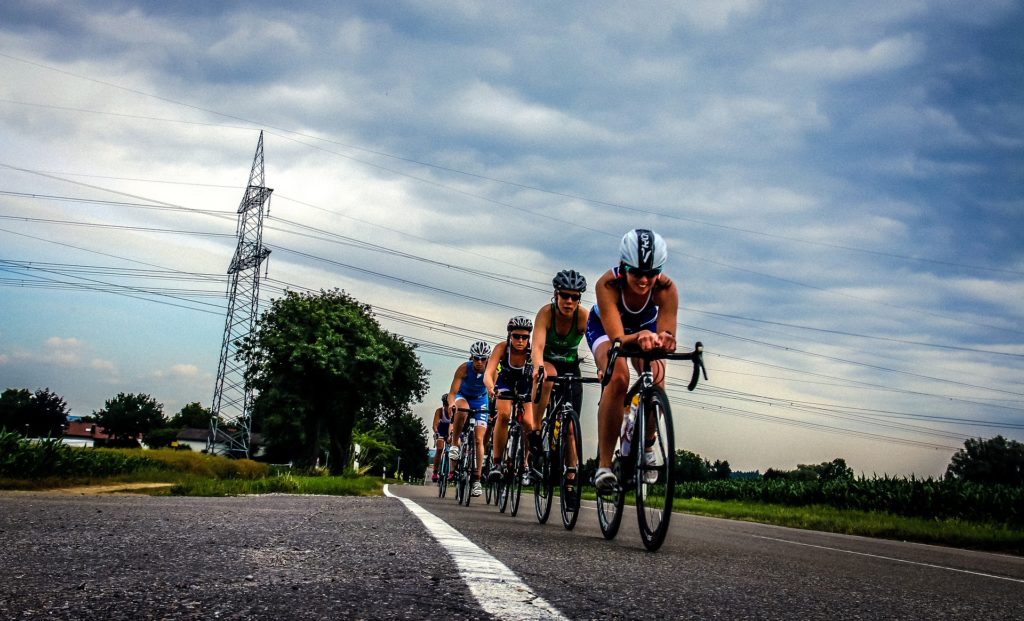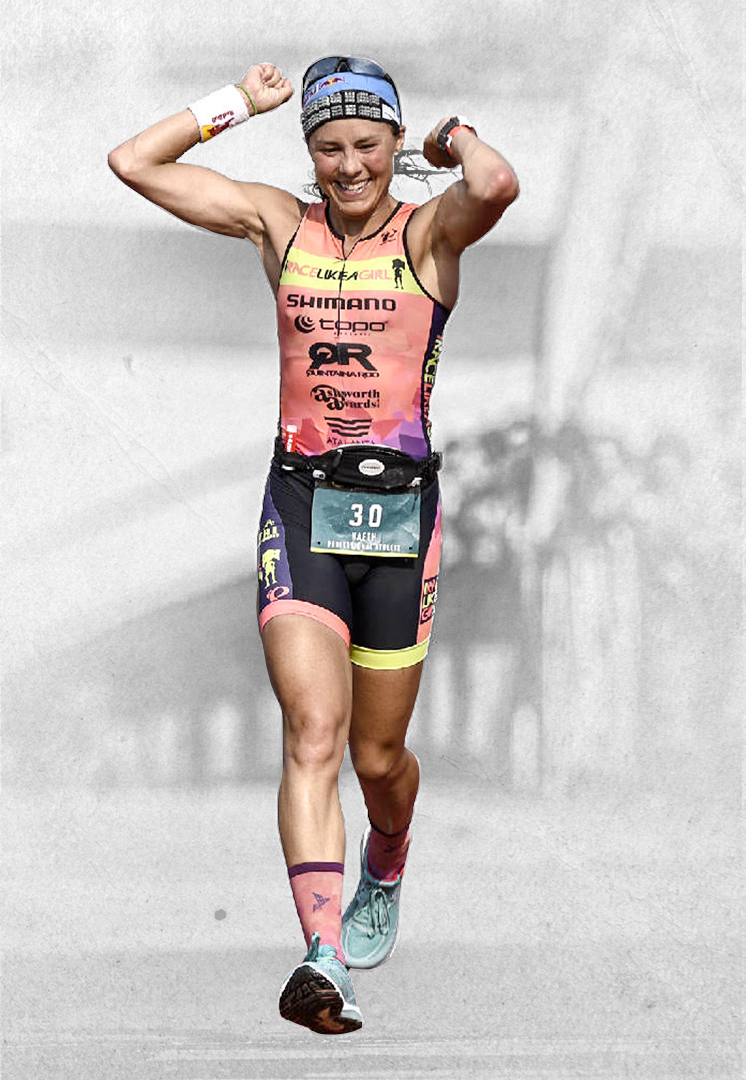Real Talk. Real Life. – Part I

Real talk. Real life. I get my period monthly. I have PMS, monthly. I have days I’m fatigued, and the world seems to be ending. It feels almost as if I’ve been drugged. My thoughts don’t feel rational. In the days leading up to my period, I become more irritable and frustrated at minor things. I could cry watching reruns of 50 First Dates. I get the body changes, which for me are enlarged breasts (it’s noticeable on me!), water retention, and bloat. I become tired and annoyed at things that I usually don’t notice or care about. Inconsequential things, such as a dirty dish in the sink or a ruffled bed; it’s nonsense I would be concerned with minute issues. I know in the back of my head it’s PMS, but it’s almost as if my rational brain is slightly fogged and uncontrollable. On top of this, I often find typical workouts harder, power is low, I have low motivation, and become a little irritable at harder efforts. It’s only when the hormones change and my period starts that I can see the light.
I have raced, trained, and documented what happens to me monthly, including the physical, mental, and emotional variants. I’m a study of “one” in my own conclusions, however I have read and believe what happens to me, happens to all women, to some degree.
The Menstrual Cycle
Not to go into depth here, but I feel it best to provide a general sense of the different stages of our hormonal cycle.
Follicular Phase (typically days 1-14):
This is typically called menstruation. A standard period lasts 4-7 days. The hormones estrogen and progesterone have dropped to lower levels in your body. After your period, estrogen slowly begins to rise again..
Luteal Phase (typically day 14-28):
This is the time when ovulation occurs (or just after, as some literature breaks the cycle into three phases). Your body is primed to become pregnant.. During this phase progesterone levels rise. Estrogen and progesterone are both high in this phase of the cycle.
Recommendations for Training with Your Menstrual Cycle: Work With it, Not Against It
During the past 10 years, I have raced pre-period, during my period, and all days in between. I have had great performances when my body feels as though I shouldn’t. I go into each race with a mindset of “let’s see what I’ve got!” I focus on mental cues of being strong and letting the day unfold as it may. Racing (and training), is about not hoping for the best day, but learning how to deal with whatever comes your way and making the most of it.
Below are some tips/tricks I’ve used, that I have researched and found to be useful as an athlete for my performance. This is my personal experience as a strong female and professional triathlete, and I hope you find them helpful for your racing and training, too. Please understand, no two people are the same, and no two cycles will be either. I recommend doing as I did, documenting over time how you feel throughout each cycle, and getting to know your own body.
Power of your Period
In the follicular phase (during your period, and first 14 days of your cycle – see below for more info on the menstrual cycle), I have higher energy and pain tolerance levels. I tend to recover faster and am ready for almost every workout. It’s a great time for me to push more intensity in my training. As I get closer to ovulation, and into the next phase of my cycle (day 14-28), I tend to slowly feel changes until I’m premenstrual. This is where I am definitely more fatigued, irritable, bloated and find it hard to handle heat. All of this can be explained by our changing hormone levels.
Consider your Menstrual Cycling when you Look at your Program/Training Plan
Listen to your body. Usually exercise helps with menstrual cramps/symptoms. If it’s difficult, consider easing into the workout, and/or going easier until you feel good. The body knows best. Consider more aerobic training before your period, and more high-intensity workouts after your period. Use your period to your advantage and don’t try to fight it.
Get a menstrual app on your phone. Document your period for many months to see how you respond to your cycle and to potentially document when you will get your cycle in the future. There are several apps on the market. I currently use one called Period Tracker. I use the free version and it has been very helpful in seeing when my period will potentially be and what I need to prepare mentally for (if for instance, pre-menstrual days fall on a race day)
Consider a day off. Even with the app I have, we schedule as we would and adjust daily, as needed. That’s the only way to train at your strongest. I have some months where PMS affects me so greatly, while others, it doesn’t. Overall though, I can bet on at least one day of complete and utter fatigue.
According to a Swedish study, you can gain more muscle mass by training during the first weeks of the menstrual cycle, from the beginning of your menstruation until ovulation. Use this to your advantage in your training with higher intensity training and efforts.
Find a coach (if you don’t have one), that you can be 100% open with about your cycle. Hormonal changes affect you as an athlete and he/she should be well-versed in this area. If you feel uncomfortable, and/or your coach doesn’t understand these issues, I highly recommend looking at possibly changing coaches or documenting for yourself and following your body’s queues as needed . It can only help you as an athlete to be able to be open and communicative with your coach. If you’re a female athlete working with a male coach or any coach for that matter, this conversation should be common.
My Real Talk. Real Life. sequence will be continued with two more parts. In the next installment I will discuss nutrition and the menstrual cycle, as well as additional information regarding hormones, contraceptives, pregnancy, and menopause.

Angela Naeth’s experience includes being a 3x Ironman Champion, 36+ podium places at the 70.3 distance and 8th at the Ironman World Championships in 2018. Her educational background includes a Master’s degree in Physical Therapy and Bachelor’s in Health Sciences. Angela continues to pursue her career as a professional triathlete, is the founder of an all women’s endurance team and coach’s others to achieve their athletic pursuits. Her passion is to inspire and support Women In Sport.








